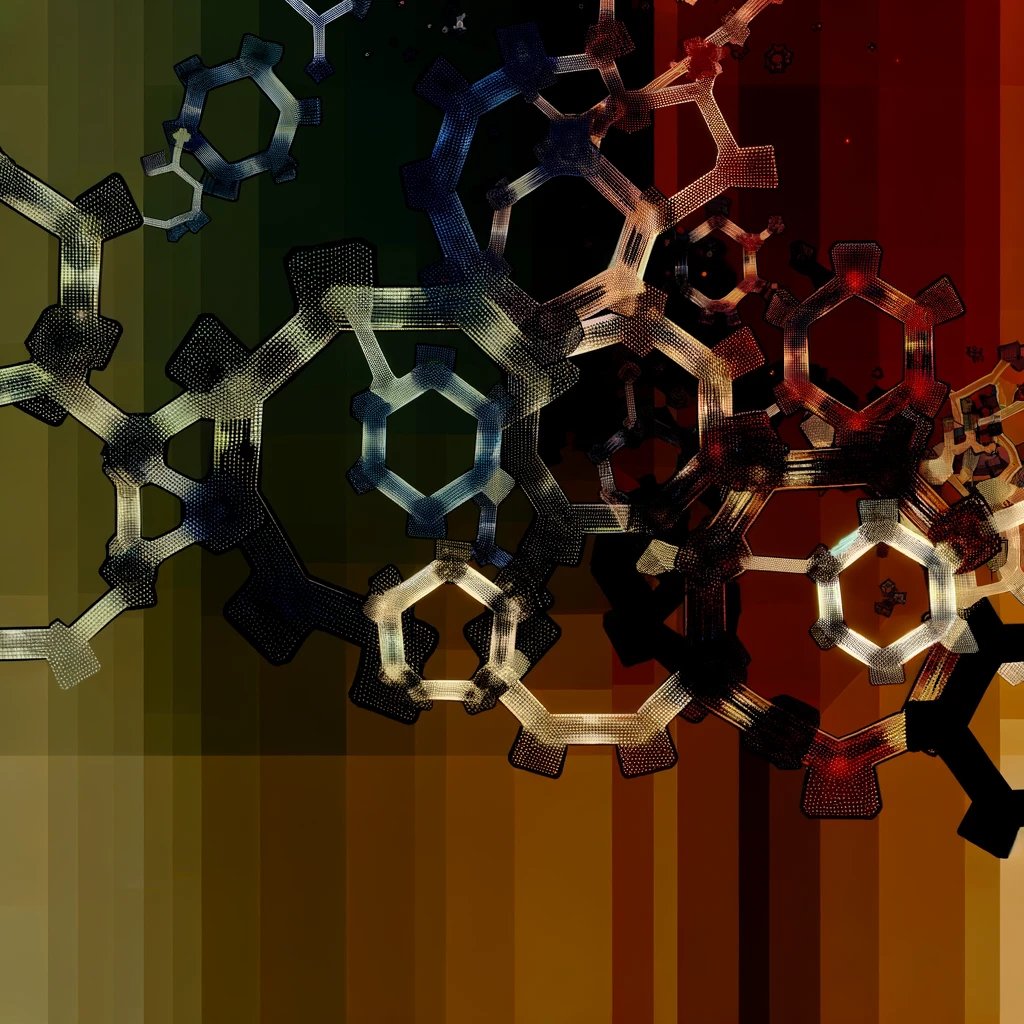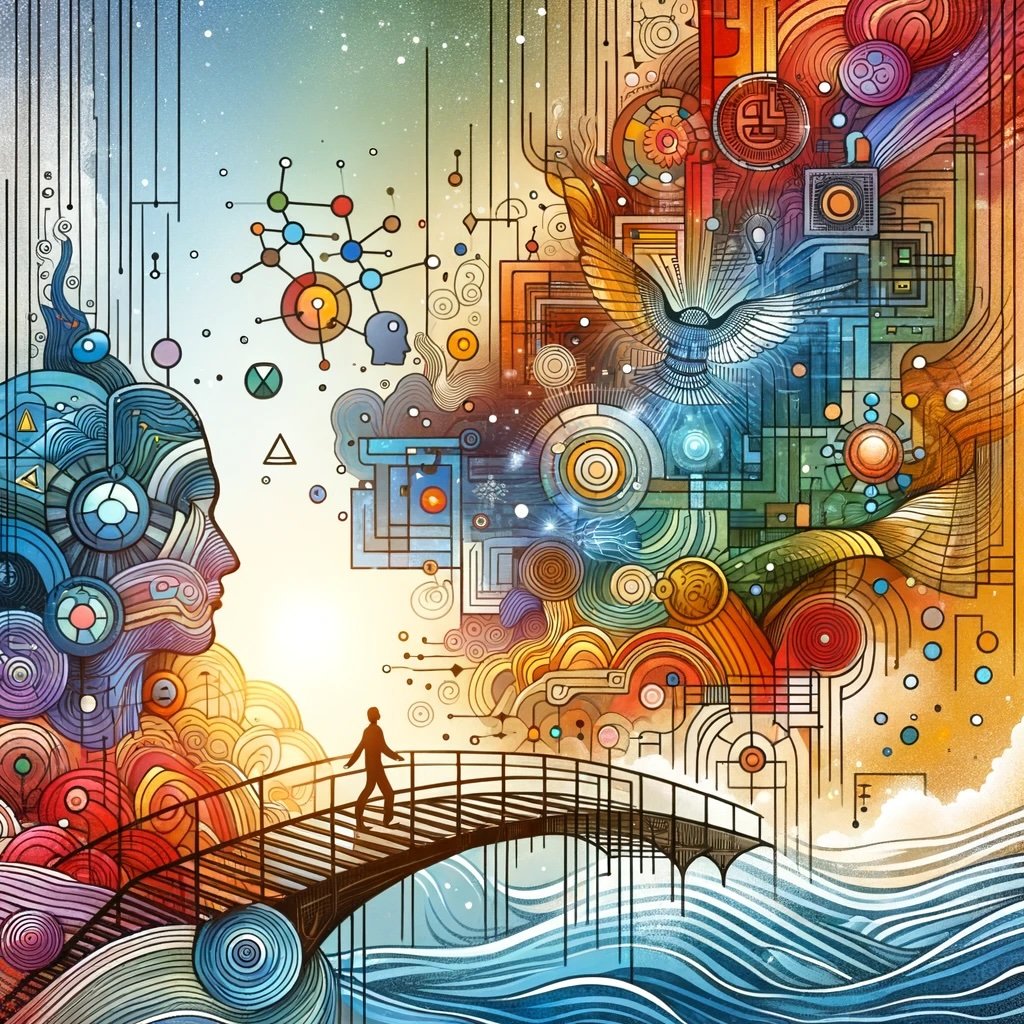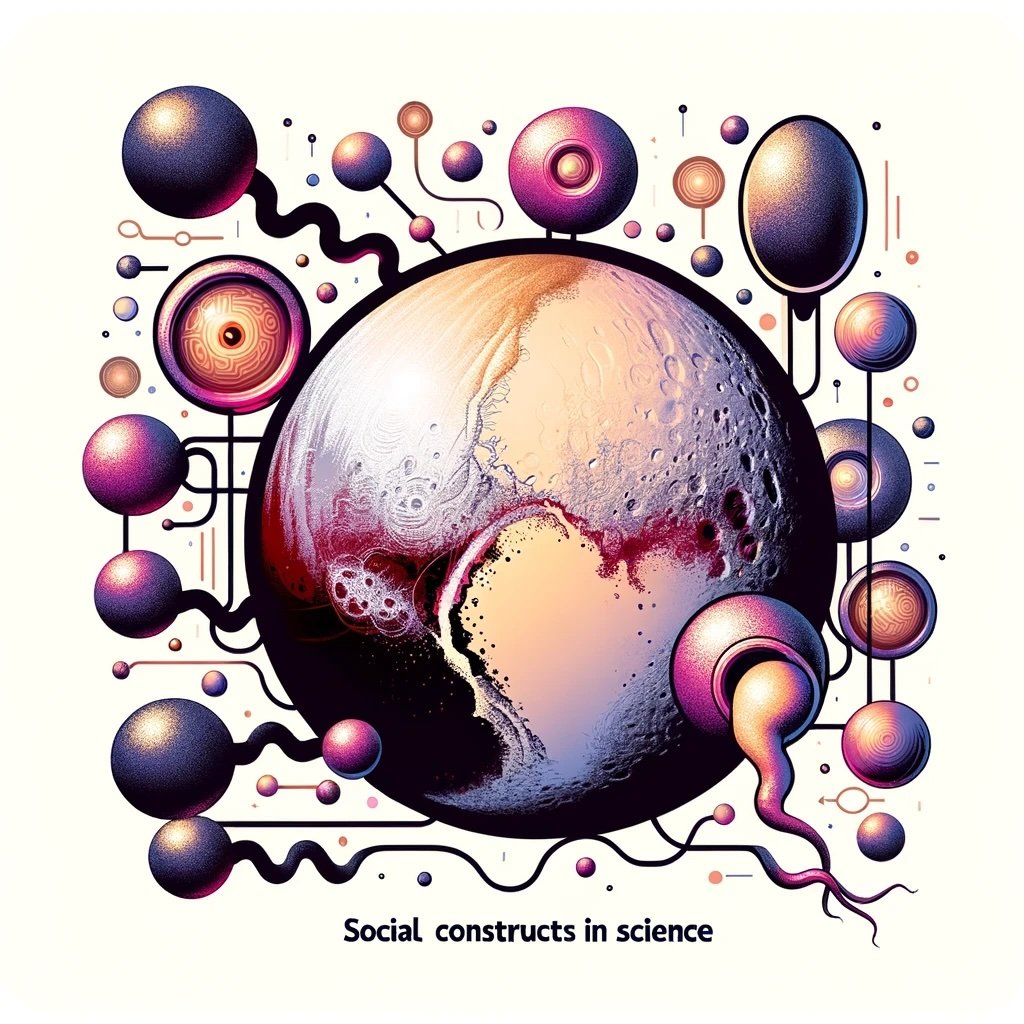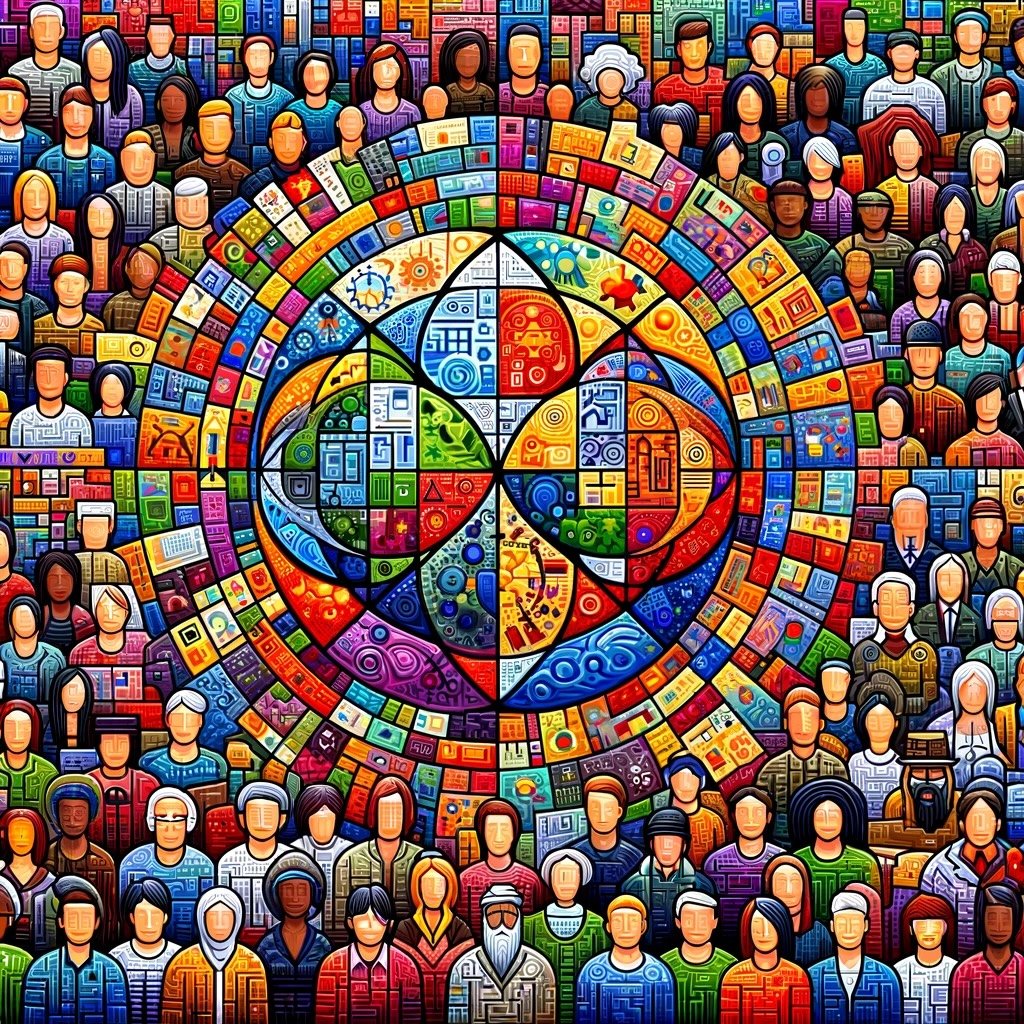Welcome to my blog!
Every morning, I begin with a cup of coffee and 15 minutes of free thinking. I write down everything that comes to mind, from new ideas to thoughts that emerged overnight. This is where I develop and refine my new research. You'll find some repetition and ideas still in progress. Some might seem unusual or unclear at first, but that's part of the journey! I'm excited to share how my ideas form and evolve.
What’s Logically Wrong with Populism?
Examining the ways populism exploits incoherence and bad logic to make truth irrelevant, and the dangers this poses to political discourse.
What’s wrong with populism from a logical point of view? You might be tempted to think that what’s wrong with it is simply that it’s illogical. You can’t trust someone who uses bad logic. That claim has some truth in it, but it needs qualification. For one, being logical isn’t really an attribute of people. Some individuals make better use of logic than others—some are trained in logical thinking, others are not; some care about it, while others don’t find much use for it in their lives. I’m okay with any of the above. Young children, for example, aren’t that good at using logic, but that doesn’t stop us from loving and interacting with them. My main point is that being logical or not isn’t a fundamental trait, like being tall or having brown eyes.
In populism, however, logic can be a barrier to effective rhetoric. The populist world champion at the moment is Trump, and it’s undeniable that he manages to convince a lot of people—but of what? What does he convince people of? Not of facts or truths, because so much of what he says isn’t true. Yet, he seems to believe whatever he says, and so do many of his followers. But why?
Here’s my hypothesis: populism exploits incoherence to obfuscate truth. And it’s not the incoherence itself that is so damaging, but how it renders matters of truth irrelevant. I mentioned above that much of what Trump says is false, but, frankly, I don’t even know. The point is that it doesn’t matter whether each of his statements is true or not, because the whole is incoherent.
I spend a lot of time illustrating in *Logic in the Wild* that truth and logic are independent. Some arguments are logical but have only false content, while others are illogical and contain only true content. This brings me to the crucial point: it’s possible to speak only truths in an illogical manner. So what’s wrong with populism? The fact that it violates logic is part of it, but that’s not the main danger. The real issue is that by persistently exploiting bad logic and rhetorical tricks, populism makes truth impotent. What’s left are passions, and human passions, unchecked by logic or truth, can be frightening.
More Movement of Epistemic Classes
Examining the possibility of non-violent change in addressing epistemic oppression and the potential for a "quiet revolution" in rebalancing societal powers.
Marxism is a dynamic theory, in which classes are in constant interaction until the lower classes reach a level of exploitation that entices them to revolt against the upper class. Is a revolution necessary? I don’t think so, because it’s not too difficult to imagine a scenario in which a society engages constructively in the dialectical struggles and seeks to reestablish a more equitable distribution of power. There are pockets of historical change in which a ruling population lifts their oppressed counterparts and provides them genuine means to rehabilitate their interaction.
In Quebec, the government followed the population’s will to regain autonomy and self-determination in what is called a “quiet revolution,” one that didn’t operate with violence and the eradication of the richer classes, but rather one that realigned power so that everyone could have a fairer chance. Yet, unless the upper side of an oppressive relationship between classes genuinely acts to redress inequalities, the lower side must shake things up enough to force a change or risk the collapse of the system.
Yesterday, I talked about epistemic classes and the need for a richer classification of society that recognizes inequalities in power beyond material goods, namely the ability to contribute to the knowledge, beliefs, and values of a society, as well as the freedom to fulfill one’s life while contributing to society in alternative ways. But like with material goods, some portions of society have a greater grip on the epistemic structures; they choose what is to be published and taught, what is to be emphasized or forgotten, and the narrative of a society that secures and justifies their disproportionate epistemological influence. Unless marginalized people who do not fit in the upper side's epistemological patterns and beliefs have room to manifest their experience and seek a fair place in society, the upper side ends up reinforcing a structural system that silences narratives and erases identities.
What does it take to rehabilitate this epistemic oppression short of a revolution that shakes structures enough to give room for their stories?
The Movement of Epistemic Classes
Exploring the limitations of traditional Marxist theory in addressing modern societal complexities and the emergence of epistemic powers that shape contemporary inequities.
In traditional Marxist theory, society is divided into socio-economic classes based on the possession and production of goods. It’s a material division of society based on economic status. Those who are not owners come to be exploited, and an unequal distribution of power yields an unequal and inequitable society. Marx claimed that the movement of social classes happens by revolution and predicted that the proletariat would revolt against the bourgeoisie and rehabilitate the distribution of power in a more equitable way.
This analysis of the movement of classes is rather thin, ultimately reducible to an economic analysis of equity in society. This approach works well in a population that is otherwise homogeneous. If people perform social roles that are predictable, uniform, and stable, within a society where culture and race are relatively homogeneous, then it makes sense to separate them in a material way because the other factors are "kept equal" by default.
In a modern context, researchers in critical theory have come to endorse a richer notion of power, including not only material power but also epistemic power—encompassing cultural, moral, ethical, religious, and spiritual dimensions, and what I suggest as logical power. Because our populations are mixed and complex, and because we have created room for the emergence of alternative identities and realities, the carving of societies into material classes hides axes of oppression that are pervasive. There is inequity that happens in the public sphere where people’s identities, lived experiences, and worldviews are silenced, forcing marginalized groups to conform to the norm or be radically excluded.
A new type of social movement is now observable, whereby the oppressed are seeking epistemic rehabilitation. I’ll leave you with this question: if powers are not only material but also epistemic, is the movement of epistemic classes one of revolution?
The logic of things
This post explores how the term ‘logic’ is used in various contexts, from political ideologies to natural processes, and questions whether it genuinely reflects logical reasoning in the scenarios it describes.
People often talk about the 'logic' of various ideologies or scenarios, such as the "logic of the right," or the "logic of the left," and even extend this to "war logic" or the "logic of natural selection." I find myself resistant to these phrases, mostly because their meanings are not always clear.
Contrast "the logic of the left" and "war logic" with "the logic of natural selection." The first two concern our thoughts about societal and conflict-related issues. "The logic of the left" typically involves a political inclination towards fair redistribution and social justice. It reflects how we think about society, our beliefs about what is just, and our opinions on necessary actions. "War logic" might refer to the rationale we accept in wartime contexts. For example, arguing that we should use atomic bombs on Japanese civilians to prevent the death of American (and Japanese) soldiers would be part of “war logic.” There are specific variables, such as being on one side of the conflict and valuing the lives of your soldiers higher than the lives of the others’ civilians, which isn’t morally commendable, but something we might accept under the umbrella of the "logic of war".
On the other hand, "the logic of natural selection" refers to the processes that guide biological evolution, like the survival of the fittest—a principle explaining why certain traits prevail in species due to the survival advantages they conferred in previous generations. Is this about how we conceptualize evolution, or about how evolution actually unfolds? If it's the former, then logic is applicable as a framework for understanding. If it's the latter, it isn't really about "logic" at all but about biological processes. Asserting that certain traits dominate due to "logic" is misleading—it's not logical, it's biological. Logic, in its true sense, does not govern natural selection any more than it governs gravity or quantum mechanics.
“Kiwi Before Iwi” and the Logic of Equality
In this post, I explore the implications of the "Kiwi Before Iwi" slogan and its strict adherence to the logic of equality, questioning whether it truly serves justice or perpetuates inequality.
In New Zealand, the slogan “Kiwi before iwi” comes from a speech delivered by Don Brash in 2004, where he argued that the government should treat everyone equally. According to Brash, measures targeted specifically at Māori people grant them privileges that others do not benefit from. Instead, he believed that government policies should apply to everyone equally, meaning good measures or policies should also apply to Māori people without treating them in a special way. This is the logic of equality: everyone should be treated equally and have the same opportunities.
I wasn’t aware of this slogan in New Zealand until it resurfaced in government discourse 20 years later, like a vampire resurrected to haunt the community. It reappeared recently with Seymour and Peters, responding to affirmative action aimed at uplifting the mana of Māori people in the health system. They even equated designated spaces for Māori and Pacifika students at the University of Auckland to Apartheid, as if providing a safe space for a group of students was like preventing an entire population from accessing public services like education. Peters went as far as saying that the Labour government and its affirmative actions are akin to Nazi Germany.
The logic of equality, taken in a strict sense, leads to these catastrophic conditions. Imagine a family with children: one is a successful citizen with a high income, while another requires full-time assistance due to a health condition and cannot work or fend for themselves. Is it unjust for the parents to provide for the latter child and not give equally to the wealthier one? If the parents spend money on the child in need, must they give the same amount to the rich child to ensure equal treatment? Or should they only provide for the child in need with measures that also benefit the rich child? Using Peters' inflammatory logic of equality, are the parents like Nazis because they provide special care for their child in need?
Normally, I would think asking this question is uncharitable and creates a strawman of Peters’ view. Surely he doesn’t believe in such a strict reading of the logic of equality! I’m afraid he’s committed to it, however, because he has applied it unrestrictedly. The logic of equality is not only about caring for all Kiwis equally but also about considering measures that apply to disembodied individuals—neutral beings with no special identity or needs. If you generalise the “Kiwi before iwi” slogan to characterise the logic of equality, what do you get? “Individual before people”? “The one before the many”?
The Case for "Logic Duty": Beyond Social Media's Quick Judgments
This post challenges the rapid-fire nature of social media interactions and proposes the concept of "logic duty" as a civic responsibility to deliberate on societal issues, encouraging deeper understanding and coherent decision-making beyond the divisive echo chambers.
If I could, I would get rid of social media. Why? Because it encourages quick thinking, opinion agreement-seeking, judgment, and rejection, all of which effectively block the logical thinking and benefits that logic brings to society. What's wrong with quick thinking? It fails to filter out psychological biases. And opinion agreement-seeking, embodied by the "like" button on Facebook and similar platforms, polarizes debates. If Gill expresses an opinion I share, but in a slightly stronger formulation than I would accept, I might still feel compelled to 'like' it to show support for those who share my views and to signal our collective strength to others.
What’s wrong with judgment and rejection? It might seem obvious, but from a brief social media post, people often generalize to the whole identity of a person and reject them as fundamentally flawed. This goes against logical thinking because, as I elaborate in Logic in the Wild, logical thinking involves slowing down, taking time to consider various points of view, and trying to find coherence among our opinions. Logical thinking encourages us to slow down and think things through collaboratively, not combatively.
I would eliminate social media because, while it does generate some benefits and allows connections that would otherwise be very difficult, all things considered, I feel social media do more harm than good. Of course, that’s a fantastical and impractical idea. Social media are unfortunately here to stay. So, what’s the alternative? I propose introducing a “logic duty” in society. Think of it like jury duty, where any citizen can be called upon to spend a certain amount of time serving a civic duty in a trial until a reasonable verdict is reached that represents a deliberative decision from the community.
Logic duty would involve being called upon to spend a certain amount of time serving a civic duty to deliberate on dialectical issues—issues that are controversial in society, that have established camps and shared opinions that are incoherent as a whole. A “logic jury” would be tasked with finding coherence among diverging views and proposing a resolution back to their community or society. I didn’t invent this idea. It’s modeled after deliberative democracy, and some experiments have already been conducted, which suggest hope for an alternative way for society to debate deep issues other than relying on keyboard warriors in social media wars.
Why Logic? Beyond Individual Insight to Societal Unity
This post explores how learning logic not only sharpens individual reasoning and debate skills but more importantly serves as a foundational tool for fostering societal cohesion and constructive dialogue.
What is one big benefit that people could get from people learning logic?
A straightforward response might highlight personal benefits such as enhanced clarity in reasoning, coherence in beliefs, and improved communication efficacy. Envision communication as a strategic game where participants aim to persuade each other of their viewpoints; logic equips you with the strategies to avoid errors in thought organization and expression. While logic itself doesn’t directly bestow truth, it ensures the preservation of truth—assuming you commence with true beliefs, logical progression maintains that integrity. Logic empowers you to dissect and simplify complex views into their foundational truths. You can thus reason from your goals, starting with the view that you want to defend, and break it down into simpler components from which it follows and that are easier to support logically. With logic, you can build chains of reasoning that go from truths you know to truths you learn. In essence, logic is indispensable for truth-seekers: identifying a logical mistake negates the necessity to contest the proposition’s truth, as flawed reasoning destroys the argument itself, irrespective of content. These virtues of logic are particularly pronounced in debate contexts, where success is gauged by persuading the audience of your standpoint over that of your adversary, and extend to the political arena in policy communication and electoral strategies. This perspective underscores logic's individualistic benefits.
In Logic in the Wild, however, I articulate a richer response to the question, not targeted at benefits to individuals, but at benefits to society. The slogan I use is that logic provides a “neutral space of dialectical enquiry”-a space in which participants collaborate to explore the coherence in the various views on the same topic, and seek a common ground, seeking a stance that is neutral and aligns with all parties in the exchange of ideas. This approach transcends the contentious battle over the truth of beliefs, championing instead a constructive scrutiny of mutual interests and shared resolutions. Engaging neutrally in this dialectical space requires participants to eschew dogmatic defense of personal views in favor of a collaborative quest for logical common ground and collective understanding. This, in my view, represents logic’s most profound contribution: not in amplifying individual agendas but in bridging divides towards unified solutions. In a world infested by social media that polarises populations into extreme and untenable views, reinforced by “like buttons” that transform debates into voting procedures over opinions, logic is the beacon of hope that can redress constructive dialogue in society.
The Complexity of Racism Accusations: A Reflective Analysis
This post discusses the nuanced question of whether accusations of racism can themselves be racially motivated, especially in light of recent criticisms by NZ political leaders against designated spaces for Māori and Pacifica students.
Is it possible to be racist by accusing someone else of being racist? As I’ve said in yesterday’s post, one needs to avoid the tu quoque fallacy (the “you too” fallacy). This logical pitfall involves dismissing someone’s critique by pointing out their own shortcomings in the same area. Imagine someone telling you to consider reducing your sugar consumption due to heart health concerns, only to retort with a mention of the accuser's past heart issues. This response, though perhaps momentarily satisfying, is a classic example of the tu quoque fallacy, as their health does not negate the potential risks to yours.
Applying this logic to racism, consider the scenario where one's prejudiced remark is met with an accusation of racism, only to counter by highlighting the accuser's past insensitive joke. Both instances can indeed be racist; the issue at hand is whether such accusations can be inherently racist.
My contemplation is stirred by the allegations from New Zealand's political figures, Winston Peters and David Seymour, against the provision of spaces designated for Māori and Pacifica individuals at The University of Auckland. They equate this to segregation, with Peters taking a further demagogical step into contentious territory by comparing it to the KKK. This comparison is not only inflammatory but reveals a deeper misunderstanding of the intention behind these spaces.
These spaces are not borne out of a desire to segregate but from a commitment to foster community and belonging among students who experience marginalization within the educational system. This approach extends beyond Māori and Pacifica students; universities globally allocate spaces for various groups to enrich the learning experience and foster inclusivity. Even if we agree that excluding people other than Māori and Pacifica can be explained in terms of the folk notions of race (I don’t believe this is true, but I’m making a logical point), I claim that reducing the action to one that is motivated by race is racist. Indeed, while the Māori and Pacifica designated spaces may overlap with these folk notions of race, it's erroneous to conclude that their establishment is rooted in racial exclusion. Rather, they are motivated by the goal of creating a supportive environment that acknowledges and addresses the unique challenges these groups face.
To insinuate that these efforts are akin to segregation or racism is, in itself, a racist act. It overlooks the genuine aim of creating a supportive environment for students to thrive academically and socially. The critical distinction lies in the motivation behind these actions—one aims to uplift and support, while the other seeks to divide and exclude.
The accusation of racism by Peters and Seymour, therefore, is not just misguided; it is a reflection of racism itself. It is troubling that such perspectives gain traction in public discourse, highlighting the need for a deeper understanding of racism, its implications, and the importance of genuinely inclusive educational practices.
This dialogue is not an instance of the tu quoque fallacy but a necessary confrontation of racism in all its forms. The goal is to cultivate an academic environment where all students, irrespective of their background, feel valued and supported—a mission that transcends mere accusations and seeks to address the root causes of discrimination and exclusion.
Beyond Division: Understanding the Role of Community Spaces at University
This blog addresses the contentious debate surrounding designated spaces for Māori and Pacifica students at The University of Auckland, refuting accusations of racism with a nuanced discussion on community, identity, and the tu quoque fallacy.
In a prior discussion, I explored the troubling comparison drawn by Winston Peters between affirmative policies and the reprehensible ideologies of Nazi Germany. This debate has unfortunately escalated. The University of Auckland's initiative to create spaces specifically for Māori and Pacifica students aims to foster a sense of belonging and community. These areas are vital for enabling students from these backgrounds to feel integrated within the academic environment, encouraging their success and future contributions to society.
Designated spaces for various groups, such as LGBTQ+, religious communities, women, and numerous student clubs, are commonplace within universities. They serve as essential gathering points for like-minded individuals or those with shared identities, promoting a supportive community atmosphere. Despite this, the Act party and NZ First, spearheaded by David Seymour and Winston Peters, have criticized these spaces for Māori and Pacifica students as racist. Utilizing social media platforms, they have equated these inclusive efforts with segregation and apartheid, invoking extreme comparisons to the KKK.
My argument against these claims centers on the misunderstanding and misrepresentation of what these spaces represent. They are not about exclusion but about fostering positive, community-building initiatives. Despite attempting to clarify this on social media, I've encountered significant hostility, which has only reinforced my resolve to address these issues away from the fraught environment of online debate.
Addressing the criticisms from Seymour and Peters brings us to the concept of the tu quoque fallacy, often encapsulated as "you too." This fallacy arises when someone dismisses an argument by pointing out a similar failing in the person making the argument. For instance, if confronted about a drinking problem that adversely affects my family and work, and I retort that you also suffer from a more significant drinking issue, I'm diverting from the original concern by accusing you of the same. This does not address the argument's substance; rather, it sidesteps it by shifting focus. Such a tactic, however, doesn’t apply here. The criticisms concerning the university’s policies on designated spaces misrepresent their purpose and impact. These spaces are not about segregating or excluding based on race; they are about fostering a supportive community for Māori and Pacifica students. The intention is not to limit access to communal areas for other students but to enhance the sense of belonging and community support for all. By arguing that these spaces constitute racism, critics like Seymour and Peters are not engaging with the actual objectives of these initiatives but are instead projecting a misunderstanding that overlooks the essence of community building.
To assert that these spaces are based on racial exclusion overlooks the university's intent and the nuanced realities of Māori and Pacifica communities. Such claims not only misunderstand the purpose behind these spaces but also, unfortunately, veer into racism by reducing these richly diverse communities to simplistic racial categories. Māori and Pacifica identities are founded on deep historical, cultural, and traditional connections, far beyond the narrow confines of race.
To focus exclusively on these community spaces as a form of segregation, while ignoring the wide array of similar spaces for other student groups, is to misinterpret their purpose and, more insidiously, to target Māori and Pacifica students based on a reductive understanding of race. This approach denies the complexity of their identities and undermines the very notion of inclusive community building.
By challenging the narrative that these designated spaces constitute racism, we confront a broader dialogue about community, identity, and the role of universities in supporting a diverse student body. It is not the act of creating spaces for Māori and Pacifica students that is racist, but rather the distortion of these initiatives' intentions and the denial of their positive impact on student wellbeing and inclusivity.
Winston Peters' "State of the Nation" Speech: The Incoherent Rant of a Demagogue
This blog post is a response to Winston Peters' "state of the nation" speech, focusing on his incoherent analogy between the Labour Party and Nazi Germany, and and denouncing his deployment of inflammatory demagogical rhetoric in prominent New Zealand's political discourse.
Winston Peters actively embodies a demagogical style in New Zealand politics, a portrayal far beyond mere ad hominem. He leads a minor party that regularly secures enough votes to hold a handful of parliamentary seats, positioning itself as a crucial kingmaker. In the latest turn of events, the National Party had to not only partner with Peters' party but also with ACT, a smaller party targeting a niche audience with conservative and economically focused principles. This coalition highlights the controversial yet pivotal role Peters plays within the nation's political framework.
Winston Peters often finds himself at the center of controversy, employing a strategy filled with perpetual complaints against other parties, personal attacks, and divisive rants. He accuses the media of misrepresentation, criticizes academics as "woke" and outdated, and stirs discontent among a segment of the population that is drawn to his rhetorical spectacles. His recent "state of the nation" speech was an incoherent rant, delivered more in the style of a demagogical campaign than from someone in a significant leadership position. My use of "incoherent" is deliberate, mirroring the nuanced discussion on logic as the "guardian of coherence" in Logic in the Wild. What’s particularly interesting about this example of an incoherent rant is that Peters did not overtly commit the ultimate sin of logical inconsistency. Rather, the incoherence arises from obfuscation, confusion, and the conflation of concepts and accusations.
In his speech, Peters recklessly compares the Labour Party's affirmative policies and co-governance principles with Māori to the atrocities and "philosophy" of Nazi Germany. This comparison is not only historically inaccurate but conceptually perverse. Affirmative action and policies aimed at addressing the disparities faced by the Māori population are rooted in social justice, not racial supremacy. Co-governance involves placing experts in leadership roles to make significant decisions in health, education, and other areas affecting Māori communities adversely. The Māori population, disproportionately underperforming in various success metrics such as health, education, substance abuse, and criminality, lives in a country recognizing the ongoing impacts of colonisation on these metrics. The government now seeks to honour the treaty signed between the Māori population and the Crown, understanding the need to appropriately redistribute powers to assist an oppressed community in rebuilding and thriving. Peters, echoing the racist claims of Seymour with inflammatory rhetoric, argues that such affirmative political action, based on race, privileges one race over another, likening it to the actions of Nazi Germany:
“Some people's DNA made them, sadly, according to these people and condoned by their cultural fellow travellers, their DNA made them somehow better than others. I've seen that sort of philosophy before. I saw it in Nazi Germany. We all did. We've seen it elsewhere around the world in the horrors of history. But here right in our country and tolerated, by people whose job was to keep the system honest, this happened.”
Peters misrepresents policies designed to address the effects of colonization and honor the Treaty between Māori and the Crown as racially biased, fundamentally misunderstanding the concept of race and identity by simplistically reducing them to genetics. This perspective overlooks the widely acknowledged fact that the folk understanding of race lacks a biological correlate, ignoring the complex nature of Māori identity which extends beyond mere biology. Peter's rhetoric serves no purpose other than to inflame and divide. Peters and his ally Seymour's approach to politics is not rooted in any coherent philosophy or logic but is instead a mix of racism and demagoguery. I maintain that this approach is not inconsistent because there is no logical contradiction between the policies of the Labour Party in New Zealand and Nazi philosophy. Similarly, no contradiction exists between these policies and the myths of Ancient Greece or the tenets of medieval philosophy, as Nazi ideology and affirmative policies operate within entirely different conceptual frameworks that lack sufficient overlap to warrant a contradiction. Peters’ superficial accusations suggest that affirmative policies are based on race, equating it with DNA, and are ignorant of the fact that traditional notions of race cannot be reduced to genetics and that Māori identity is not a biological concept. His attempt to equate efforts to achieve social justice for Māori with the Nazis' affirmation of white supremacy and their commitment to genocide against minorities necessitates a distortion of concepts and mental gymnastics that result in logical incoherence, serving only rhetorical purposes.
Peters, it must be clear that our political parties, including Labour, the Nationals, and even the most conservative factions led by Seymour within your alliance, are not influenced by Nazi philosophy. However, the rhetoric you and Seymour espouse is racist, incoherent, and inflammatory. Prime Minister Luxon, it's commonly understood that the company one keeps reflects upon their character. This principle extends to political leadership, where the alliances formed to secure power are telling. Embracing demagogical incoherence means abandoning logic, a choice that diminishes the integrity of governance and misleads the public.
Reference: https://www.rnz.co.nz/news/political/511947/winston-peters-delivers-state-of-the-nation-speech
Disentangling Equity from Special Treatment: A Critical Look at the Perception of Marginalized Groups’ Demands
This post examines how demands for equity by marginalized groups are often misinterpreted as calls for special treatment, particularly when these groups are ethnic minorities, using a notable speech by Don Brash as a case study.
Marginalized groups' calls for equity are frequently misunderstood as demands for special treatment. This misunderstanding becomes particularly pronounced when the group in question is an ethnic minority. Their appeals for fairness are often viewed through a lens that paints them as race-based demands. A compelling illustration of this dynamic can be found in a speech delivered to the Orewa Rotary Club in 2004 by Don Brash, then-leader of New Zealand's National Party. Brash's argument draws on a piece by Simon Chapple in the Policy Science journal (2000), which contends that there is no direct correlation between being Māori and experiencing societal disadvantage, arguing that disadvantage is not uniquely tied to ethnicity but to broader socio-economic factors.
Chapple's analysis suggests that the notion of Māori identity is fluid, shaped by self-identification and intermarriage with non-Māori, leading to significant variability within the Māori population itself. He identifies a specific subgroup—those strictly identifying as Māori, residing in rural areas, and lacking education—as facing disproportionate disadvantage. However, he argues that these challenges are not a product of their Māori identity but of general societal factors such as geographical isolation and educational attainment, which affect all individuals in similar circumstances, regardless of their ethnicity.
This perspective fuels Brash's claim that Māori demands for equity are "racist," under the premise that they seek benefits exclusively for Māori, neglecting others in similarly disadvantaged positions who do not identify as Māori. Such arguments, however, miss the broader point of equity movements: they do not demand special treatment for marginalized groups but seek to address systemic inequalities that disproportionately affect these groups. By framing these demands as race-based or otherwise exclusionary, critics like Brash not only misrepresent the goals of equity initiatives but also contribute to a discourse that can silence or erase the very groups advocating for change.
The critique of equity calls as being "racist," "selfish," or "sexist" reflects a broader pattern of resistance to social justice efforts, which often seeks to discredit or diminish the legitimacy of these movements. This pattern systematically turns against the oppressed groups in a way that not only reinforces the very oppression being challenged but also employs tactics of silencing or erasing these groups under the guise of universality—that measures should apply to everyone equally, disregarding the nuanced and specific nature of their struggles.
At the core of my exploration is an attempt to better understand these responses to calls for equity. The assertion that such demands are, in various contexts, labeled as "racist" (as in the case of ethnic equity), "selfish" (as seen against trans activism), or "sexist" (against feminist movements) reveals a troubling strategy. This strategy seeks to discredit and diminish the legitimacy of these calls by framing them in a manner that not only misrepresents their intentions but also bolsters the existing structures of oppression. By labeling these calls as divisive or exclusionary, the discourse shifts from addressing systemic inequalities to questioning the validity of the groups’ grievances, effectively silencing or erasing their voices under the pretense of seeking a universal solution that often overlooks the specific needs and challenges faced by marginalized communities.
References: https://www.donbrash.com/national-party/orewa-2004-nationhood/
Simon Chapple, “Maori Socio-economic Disparity”, Political Science, Vol 52, No 2, December 2000.
Dear Leaders, Grow Up!
This post critiques the divisive rhetoric of New Zealand's political leaders, urging a more mature approach to discourse while preserving the passionate critique embedded in the original argument.
Yesterday, New Zealand Prime Minister Christopher Luxon delivered his State of the Nation speech, in which he criticized the former government's approach to the justice system with a claim: “A justice system which had a deliberate strategy to empty New Zealand's prisons, even as violent crime soared.” This sentence, part of a broader rant against the previous administration, misrepresents complex justice system issues by suggesting a misguided strategy of reducing prison populations amidst rising violent crime. It inaccurately ascribes agency and deliberation to the justice system, overlooking the nuanced debate over carceral reform and the systemic issues fueling crime, such as housing, inflation, climate change, and social inequities.
Contrary to Luxon's portrayal, the critique is not about emptying prisons per se but addressing the carceral system's failure to rehabilitate. The notion that merely increasing incarceration will solve rising violence is a simplification that ignores the root causes of crime embedded in societal problems.
In response, Opposition Leader Chris Hipkins criticized the current government, saying, "I believe that the current Government are doing everything that they can to make the country more fragile, to make New Zealand a more divided place, and to make the vulnerable in our communities more isolated." That’s also false and inflammatory. The Government is obviously not trying to make the country fragile and divide us. Quite the opposite—they believe that redressing the books and reducing the bureaucracy can free up the economy, which in turn, is crucial for strengthening the country. They also hold that communicating with everyone in the most neutral terms possible will foster unity (for a critique of this dream about neutrality, see my other blog posts). The current government is doing everything within its power to bolster the country's strength and bring its people together. Hipkins may not agree with this approach, but attributing malicious intent to the government's actions to weaken and divide the country is not only false but also unhelpful.
The dialogue between Luxon and Hipkins epitomizes a troubling trend in political discourse: leaders engaging in baseless accusations and oversimplifications, diverting attention from substantive issues. This exchange does little to address the complex challenges facing our nation and the world, reducing potential solutions to mere rhetorical tactics.
It's disheartening to witness this level of discourse among our leaders. Both acknowledge the myriad problems we face, yet their public engagements often devolve into insults and unfounded claims, rather than fostering constructive dialogue or offering hopeful solutions.
Dear leaders, it's time for a shift towards maturity in our political conversations
References:
- "Livestream: Prime Minister Christopher Luxon delivers State of the Nation speech." News-hub. https://www.newshub.co.nz/home/politics/2024/02/livestream-prime-minister-christopher-luxon-delivers-state-of-the-nation-speech.html
- "PM Luxon's State of the Nation speech a 'buffet of buzzwords and full of nonsense': Opposition." Newshub. https://www.newshub.co.nz/home/politics/2024/02/pm-luxon-s-state-of-the-nation-speech-a-buffet-of-buzzwords-and-full-of-nonsense-opposition.html
Unpacking Collective Actions: From Atomic Responsibility to Social Justice
This post explores the nuanced dynamics of group versus individual accountability, particularly in historical and social justice contexts, emphasizing the complexity of attributing actions and consequences across different societal levels.
I'm trying to articulate a thought about levels of groups and find myself at a bit of a loss. It's not just that it's a complicated issue; it's that it's an old one, seen from many angles, yet I'm on the hunt for the perspective that best aligns with logical praxis. The problem, as elusive as it may feel, revolves around the interplay between group and individual responsibility—a term I'm hesitant to use, but it'll have to do for now. My aim is to dissect this notion without losing sight of the complexity and nuances involved.
In grappling with this intricate problem of attributing actions and consequences to groups versus individuals, we confront a perennial challenge that resonates across various domains of logical praxis. The crux of this issue, tough to articulate clearly, hinges on the nuanced distinction between collective and individual accountability. Take, for example, the assertion that the United States bears responsibility for the creation and use of the atomic bomb. Such a statement implicates a nation in collective actions, yet the degree of participation and accountability of its individuals varies significantly.
J. Robert Oppenheimer, as the leader of the Manhattan Project, undeniably played a pivotal role in the development of the atomic bomb, yet his direct responsibility for its use against Japan remains a complex question. While the United States as a nation is acknowledged for both developing the atomic bomb and its subsequent deployment, President Truman's responsibility diverges, focusing more on the decision to use the bomb rather than its development. This delineation underscores the challenge of attributing actions and responsibilities within a group without implicating all individuals in every action.
This problem extends into the realm of social justice, where groups are often held "responsible" for oppressing others - men over women, white people over people of color, straight people over the LGBTQ+ community, and colonial powers over indigenous populations. Drawing from critical theory, we learn about the mechanisms of oppression within these dualities and how they manifest across time and cultures. The "WSCM equation" – white, straight, cisgender, man – serves as a shorthand to encapsulate the multifaceted ways in which marginalization and oppression are perpetuated by dominant groups.
Yet, the question arises: at what level does this oppression operate? The retort "But not all men" exemplifies a common misunderstanding, conflating individual actions with group-level dynamics. Not every man individually perpetrates overt acts of oppression; instead, WSCM represents a systemic level of oppression that transcends individual deeds. This systemic oppression is not merely an aggregation of individual actions but a manifestation of entrenched power imbalances within society. There’s also this systemic level of oppression, one that unfolds at the group level, and that eludes simple attribution to individuals.
Efforts to address this systemic oppression often encounter resistance, stemming from a confusion between the levels of action. Objectors fail to recognize that advocating for social justice and striving to rebalance power within our communities does not target individuals per se, but rather seeks to address and rectify the underlying group-level dynamics. The challenge, then, is to navigate these complexities, acknowledging the distinction between individual and collective accountability while pursuing meaningful change.
Violence in translation: when logic becomes a tool of oppression
This post explores how the interpretation of the Treaty of Waitangi's translations can lead to a form of oppression through the imposition of foreign logical frameworks on Māori concepts, using the term 'tikanga' as a key example.
Article 3 of Te Tiriti o Waitangi offers a profound insight into the complexities of language translation and the power dynamics it entails:
“Ko te tuatoru (Article 3): Hei wakaritenga mai hoki tenei mo te wakaaetanga ki te Kawanatanga o te Kuini – Ka tiakina e te Kuini o Ingarani nga tangata maori katoa o Nu Tirani ka tukua ki a ratou nga tikanga katoa rite tahi ki ana mea ki nga tangata o Ingarani.”
The English rendition of this article states:
“Article the third: In consideration thereof Her Majesty the Queen of England extends to the Natives of New Zealand Her royal protection and imparts to them all the Rights and Privileges of British Subjects.”
David Seymour, the New Zealand ACT leader and a member of the current governing coalition, addressed this topic in his “State of the Nation” speech on January 28. Seymour argued:
“And when it comes to the Treaty of Waitangi, we as a country have a simple choice to make. We can either believe that the Treaty of Waitangi created a partnership between races, as some say, or we can believe that it delivers what it says itself in the Māori version: nga tikanga katoa rite tahi - the same rights and duties. That is the fundamental question.”
Here, Seymour's interpretation diverges from the commonly used English version, presenting a notable example of epistemic injustice towards the Māori people, as defined by philosopher Miranda Fricker. This instance reveals the significant role logic plays in translation, extending beyond mere linguistic exchange. The concept of 'tikanga,' as interpreted by Seymour, showcases a stark logical imposition of European moral understanding on Māori principles.
Te reo Māori and European logic represent distinct conceptual spaces, with the former embodying a holistic approach, as opposed to the Cartesian framework prevalent in European thought. This distinction is crucial when considering the translation of 'nga tikanga katoa rite tahi' into 'the same rights and duties,' contrasting with the English version's 'all the Rights and Privileges.' 'Tikanga' encompasses a broad spectrum of meanings, including customs, practices, values, and rights, lacking a direct equivalent in English. The choice of translating 'tikanga' to 'duty' imposes a European logical structure, thereby enforcing a specific moral concept with profound legal and societal implications for the Māori community.
This act of translation does not merely reflect a linguistic challenge but represents a form of logical violence, isolating and reinterpreting a rich and interconnected Māori concept within a European moral and legal framework. Such actions underscore the importance of approaching translation with sensitivity to the underlying logical structures, ensuring respect for the original cultural context and preventing the erasure of indigenous knowledge systems.
Logic and the Pursuit of Equality: A Critical Examination
In this post, we examine abstract equality through logic and its potential to overlook the experiences of marginalized groups.
In his recent "State of the Nation" address on January 28, New Zealand ACT leader David Seymour, a part of the current government coalition, emphasized the importance of treating all individuals equally as human beings. He stated, "We accept that if government policy doesn't treat all people equally as human beings, then we will gradually find division becomes the norm." He also expressed his belief in "universal humanity," emphasizing the same rights and dignities for every person and highlighting its role in historical social rights movements such as votes for women, the civil rights movement in America, and the end of apartheid in South Africa, among others.
While I won't delve into the idea that "universal humanity" has driven social rights movements, I'm interested in exploring the concept of abstract equality. This is significant because logic provides a framework for articulating how abstract equality can be achieved through neutrality.
In "Logic in the Wild," I defend the perspective that logic acts as the "guardian of coherence" and offers a "neutral space of dialectical enquiry." Neutrality, in the context of logic, implies detachment from content, enabling us to focus on the structural aspects of arguments, beliefs, or theories independently of their subject matter. Being logical doesn't hinge on truth, reasonableness, or sensibility; rather, it demands that beliefs are held coherently.
Seeking neutrality in communication and within the community holds numerous practical advantages. Neutrality facilitates abstraction, leading to universality and generality. Logically true statements, or tautologies, are assertions that cannot possibly be false, such as the claim that everything is either human or not. While this logical lens may render everything equal, it also strips away richness and diversity.
However, the challenge arises when we attempt to achieve social equality solely through abstraction and neutrality. This approach risks erasing the specific experiences of marginalized groups, those that are often subjugated under the banner of "universal humanity." While individuals like Seymour, positioned in places of power, may see equality through neutrality as a liberating force for fairness and justice, their own identities remain largely intact in this pursuit. This is because they already enjoy the "same rights and dignities" that they believe should be extended to everyone.
I have concerns about the rhetoric of equality used by politicians who advocate for erasing identities as the path to a just society. This approach may inadvertently overlook the unique challenges faced by marginalized communities. Achieving true equality requires us to navigate the delicate balance between embracing universality and acknowledging the importance of individual identities and experiences.
Shut up and listen!
Exploring the value of a father's advice, "Shut up and listen!", this post urges leaders to embrace active listening in the context of Waitangi weekend.
"Shut up and Listen!" These were the pivotal words of advice from my father about attending school, and they served me well. As a lively and outspoken child, I transformed at school into a quiet observer. This approach allowed me to grasp the teachers' instructions quickly, complete tasks efficiently, and indulge in my passions for reading, video games, and sports. I fondly recall mastering Tetris, rewarded with computer time for classroom achievements.
Reflecting now, it's evident how much time was squandered with classmates not listening, being distracted, or causing trouble. Teachers tirelessly repeated lessons, a cycle spanning months, even years. Yet, this critique might seem harsh. The reality of school, a challenging and monotonous environment where children sit on plastic chairs at tiny desks in enforced silence, was indeed complex.
Contrary to this school persona, I was anything but silent and withdrawn outside of school. I'd engage vigorously in discussions, express my opinions loudly, and challenge others'. This, I observe, is how many adults behave today around me.
I constantly remind myself of my father's advice: to listen. To understand others, their reasons, backgrounds, and especially to seek coherence in their views. Like many, I initially judged people for holding beliefs different from mine. However, logic taught me to pause, not to focus on the content of their beliefs but on their internal coherence. Agreement is not the goal; rather, it's understanding how their beliefs interconnect. This approach often reveals more common ground than initially apparent.
This reflection was sparked by the upcoming Waitangi weekend, a significant time for Māori and European relations in New Zealand. I've been contemplating the “Kiwi before iwi” slogan and the government's attempts at universal equity, which inadvertently overlook specific social justice issues.
Politicians like Winston Peters dominate stages with insults and rhetoric instead of choosing to listen. When figures like Seymour call for debate, it often translates to them lecturing us. Free-speech advocates seem to foster not constructive debates, but rather verbal brawls filled with insults. Luxon, meanwhile, repeats his points incessantly, avoiding questions and residing in a bubble where his version of success, endorsed only by a select few, prevails.
Guys, it's time to embrace my father's simple yet profound advice: "Shut up and Listen."
Iwi Before Kiwi: Uncovering the Hidden Depths in Societal Generalizations
This post explores how narrowing our focus from broad generalizations to specific groups reveals deeper truths and addresses social inequities.
When you make a true statement about everything, and I'm talking about 'Everything everything,' you're likely to end up with mere platitudes. Take, for example, the assertion that everything either exists or doesn't. This applies to me, my cat, and, well, everything. But consider the claim that everything is part of everything. This seems valid, but only if we're interpreting 'everything' in a consistent manner (note the play on different meanings of 'everything'). Admittedly, this isn't particularly exciting. My argument here is that general statements encompassing everything tend to be low on information.
Now, let's shift our focus to general statements about a narrower set, like humans. Suddenly, we're able to make more interesting observations: every human has a heart, humans inhabit Earth, and our survival depends on water. The narrower the group, the more specific and informative our statements can be. Consider children: all children are younger than 30 years old, and no child under 5 can drive a car. Surely, you can think of numerous other examples. The pattern here is clear – by focusing on increasingly specific groups, we gain more meaningful information. Conversely, the larger the group, the fewer statements apply universally to all its members. This reality underscores how marginalized groups are often erased in broad, sweeping statements that aim to encompass everyone.
An example of this is the phrase 'Kiwi before iwi'. When New Zealand Prime Minister Luxon speaks of unity and inclusivity for all Kiwis, his intention might be to promote governance that is equitable for all. However, such a stance inadvertently neglects the unique identities and lived experiences of marginalized groups. The systemic disparities between the majority of Kiwis and marginalized groups, such as Māori or LGBTQ+ people, become apparent only when we consider these subgroups separately. Broad generalizations about all Kiwis tend to obscure the specific statistics and insights necessary for achieving equity and social justice.
There's a logical imperative to explore different domains of quantification if we want to uncover informative generalizations that can help propel our country forward. We must recognize that, at times, prioritizing 'iwi before Kiwi' is essential for fostering a just society.
One vs All: Equitable Justice vs Identical Treatment
Is societal justice about treating everyone identically, or does it demand a more nuanced, equitable approach?
If you found yourself as the sole survivor in a world devoid of other humans, your actions would be unbound by the typical constraints of morality. Social justice issues wouldn't come into play in such a solitary existence. This scenario, while intriguing, isn't one I'd wish upon anyone. The prospect of being the last human being, in what would cease to be a society, is a bleak one.
However, this thought experiment highlights a fundamental truth: fulfilling all our needs independently is unattainable, given our intrinsic nature as social beings. Living in groups, as we do, means our preferences, desires, and needs will inevitably intersect and, at times, conflict. This necessitates a process of negotiation within our families, communities, and broader society. We strive to find ways to meet everyone's needs while preventing oppression and exploitation.
In a small group, a simple majority rule might seem effective. Yet, this system fails when the majority's decisions adversely affect the marginalized groups. Consider a household of three where a strict majority rule is applied: if two decide that the third person should undertake all cooking duties, the arrangement becomes unjust. As we scale this concept to larger communities and societies, the potential for majority-driven oppression grows significantly. What happens, for example, when a majority dictates that a subgroup should be enslaved for labor?
Conversely, there's the issue of a minority or a dictator wielding excessive power, leading to the oppression of the majority through violence and fear. But that's a topic for another discussion. Here, I'm concerned with the majority's perception that focusing on societal issues faced by marginalized groups, and seeking redress for these issues, somehow diminishes the majority. This viewpoint overlooks the fact that striving for a just distribution of goods and rights in society is not necessarily at the expense of individuals.
If social measures only cater to every individual equally, systemic and societal issues affecting marginalized groups may be overlooked, no matter their severity. For instance, we could tackle class disparities and the economic divide between rich and poor, yet still leave a subgroup in extreme poverty if they are too small to influence the broader movement. This is why the New Zealand government's call to work for "every Kiwi" raises concerns. It suggests that measures benefiting each individual equally are the hallmarks of a just society. However, identifying, acknowledging, and correcting the injustices experienced by various marginalized groups is essential for the entire community to thrive and evolve into a more equitable society.
So the pursuit of social justice and individual rights requires a nuanced understanding that extends beyond simple equations of equality. This involves not only addressing the broader societal issues but also giving due attention to the unique challenges faced by marginalized groups. The goal is to create a harmonious society where the needs of both the majority and marginalized groups are met, fostering a community where every individual, regardless of their group affiliation, has the opportunity to thrive. This approach, focusing on equitable treatment rather than identical treatment, is crucial for building a more just and inclusive society.
"Kiwi before iwi": Exploring Logic and Identity in New Zealand's Political Landscape
This post explores the tension between logical neutrality and the erasure of individual identities in New Zealand's political landscape, examining the implications for Māori communities.
This weekend, a significant gathering occurred: a hui attended by 10,000 people, convened by Kiingi Tuheitia, the Māori King. The purpose was to address the Coalition Government's policies on te reo and the Treaty of Waitangi. NZ First MP Shane Jones made a statement to Newshub: "The Government is focused on the interests of every single Kiwi rather than every single iwi." This sentiment echoes the old dichotomy of “Kiwi vs iwi” or “Kiwi before iwi”.
In my book, "Logic in the Wild," I argue that logic provides a neutral space for dialectical inquiry. However, there's a darker aspect to this abstraction: it can lead to the erasure of individual identities. The National government's stance of governing for “every” Kiwi ostensibly aims to unite rather than divide, suggesting that equality at the individual level avoids exclusion or favouritism. In logical terms, when the government speaks of “every Kiwi”, they are quantifying over individuals. To attain equality at this granular level, individuals must be rendered as neutral as possible.
As a logician, I am well-versed in this practice of generalising across domains. Logic aims for such a degree of generality that the entities within its domains of quantification become arbitrary. This is akin to a method in science, which I discuss in "Logic in The Wild," called ceteris paribus reasoning. This method abstracts away from interfering factors when formulating laws. For example, when Newton formulated his laws of motion, he idealised the scenario to just two bodies, a “sun” and a “planet,” treating them as mathematical points rather than celestial bodies.
This approach, while achieving generality, necessitates the erasure of individual specificity, treating entities as mere points. Members of parliament who advocate for an individualistic neo-liberal society find comfort in this “every Kiwi” domain, as their identity and social circumstances already align with the required neutrality. However, the challenges faced by iwis and Māori in our society are not evenly distributed among individuals. Systemic oppression manifests in various forms – poverty, health issues, substance abuse, severe mental health problems – and these are not uniformly experienced. This oppression cannot be reduced to the sum of individual experiences; it operates at a group level.
Thus, striving for neutrality at the individual level, as encapsulated in the phrase “every Kiwi”, inadvertently suppresses the recognition of oppression that affects iwis. It erases identities that are crucial to understanding the lived experiences of those facing oppression, forcing them into a framework of neutrality that is alien to their reality.
Logical Integrity in Politics
Exploring the crucial role of logical integrity in political decision-making, this post examines the varied application of logic in politics through the case of New Zealand Prime Minister Christopher Luxon's early actions and statements, emphasizing the need for consistent logical reasoning in governance.
As a philosopher and a logician, part of my role is to teach students the vital skill of applying logical reasoning effectively across various scenarios. This practice is not just an academic exercise; it plays a crucial role in real-world decision-making and problem-solving. In my experience, a common learning curve for students is moving beyond applying logic in isolated instances to embracing a more comprehensive application in a range of contexts
In the realm of politics, the application of logical reasoning is always under scrutiny, a reality that becomes particularly evident in the early tenure of political leaders. In the first week of Prime Minister Christopher Luxon's role, his handling of the controversial decision to repeal the smokefree legislation provides a case in point. These initial public statements reveal a tendency for an arbitrary application of logic in policy-making and governance. While offering a glimpse into his approach to leadership, they also subtly highlight the challenges and potential pitfalls in maintaining logical integrity across different contexts. Such instances underscore the importance of this fundamental aspect of decision-making, especially critical in the complex scenarios faced by political leaders.
The Principle of Logical Integrity
"Logical Integrity Across Contexts" demands a uniform logical approach in various scenarios. It is a call for recognizing and applying similar logical patterns in structurally similar scenarios, regardless of their content differences. In the realm of politics, where decisions have significant societal impacts, this principle is particularly crucial.
Luxon's Dismissal and Embrace of Logic
On the 27th of November 2023, in his appearance on the AM show, Luxon discussed the government's smokefree legislation with Ryan Bridge. The dialogue unfolded as follows:
Luxon: "When you've actually limited distribution and you're the only place selling smokes in some towns in New Zealand, you become a massive target for crime and for ram raids, and there will be an expanded black market that will be largely untaxed."
Bridge: "Couldn't you make the same argument for cannabis? I mean, you're talking about not wanting to have a black market, wanting to be able to tax the externality. Why don't you do a similar thing with cannabis?"
Luxon: "Yeah, different story, different effects, but I mean the reality here is we've got a tool in vapes which has actually helped a lot of people coming off smokes, which has been good."
In this exchange, host Ryan Bridge raised a logical point, indicating that the reasoning Luxon applied to tobacco should logically extend to cannabis. However, Luxon diverted from engaging with this logical similarity, choosing instead to highlight the distinct contexts surrounding tobacco and cannabis. This approach led him to sidestep the logical substance of the argument, focusing on the specificities of each situation rather than the underlying logical reasoning, and thus not directly addressing Bridge's query.
On the 3rd of December 2023, during a press conference, Luxon addressed an earlier factual mistake regarding the number of stores allowed to sell cigarettes in Northland. Recognizing this error, Luxon pivoted to a logical argument to support his stance. He stated: “[It] doesn't change a thing. The bigger point still holds that actually the reason why we opposed the legislation at the time is - and remember it hasn't taken effect, it's come into law but it hasn't taken effect - was simply to say we think that's the wrong way to go about it.”
The following day, on the 4th of December 2023, Luxon appeared on the AM show again and reiterated his logical standpoint: "The major reason is that limiting distribution creates a black market and ultimately will create more crime." This statement underscored his belief that regardless of the exact number of stores, the limited distribution would inevitably lead to a black market and an increase in crime. This week, Luxon has shifted from dismissing logic to embracing it in order to rectify his factual mistake.
Importance of Logical Reasoning in Politics
The contrast in Luxon's approach to logical reasoning in these two scenarios, as evident in his statements on the 27th of November and the 4th of December 2023, emphasizes how the application of logic varies depending on the context and the narrative at hand. While different situations may lead to different courses of action, it is essential for leaders to exhibit a certain level of consistency in addressing issues that can be tackled using a similar logical framework. During his initial week in power, Luxon vacillated between invoking logical reasoning and disregarding it in arguments based on context, resulting in responses that appear arbitrary. Luxon's diverse approaches to logical reasoning in policy-making hint at the intricate interplay between logic, narrative, and decision-making. This not only influences the efficacy of policies but also has implications for public trust in political leadership.
Conclusion
The principle of "Logical Integrity Across Contexts" is vital for coherent political decision-making. As leaders like Luxon navigate the complexities of policy and governance, adhering to this principle becomes imperative. It is not only the narrative that matters in politics but also a firm commitment to logical reasoning that adapts to various scenarios.
























































































Examining the ways populism exploits incoherence and bad logic to make truth irrelevant, and the dangers this poses to political discourse.